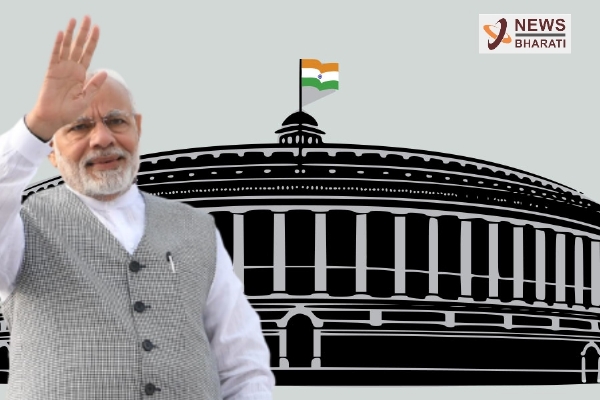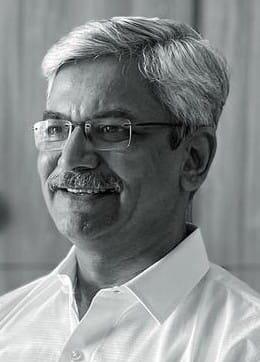Modi’s Reply in the Parliament: Defining moments for India’s Politics
Both his speeches, in Lokasabha and Rajyasabha, will go in to history as defining moments for Indian polity and Indian politics. These are surely going to have a long term impact on how the political parties would shape themselves and how Indian citizens would respond to these changes.
Total Views |
‘Rarest of the rare’ can be the only words to describe the Prime Minister’s speech in both the houses of the parliament in reply to the debate on the motion of thanks to the President’s address to both the houses. Never has a Prime Minister been so open and ruthless in calling a spade, a spade! Modi was at his ‘fiery best’ while replying to the debate. Both his speeches, in Lokasabha and Rajyasabha, will go into history as defining moments for Indian polity and Indian politics. These are surely going to have a long term impact on how the political parties would shape themselves and how Indian citizens would respond to these changes.

The President of India addresses both the houses as per various constitutional provisions and the motion of thanks to the President’s address is put to vote after a debate and discussion on the contents of address. The scope of the discussion on the Address is very wide and members are at liberty to speak on every matter of national or international importance and other issues. The current Address contained a review of various activities and achievements of the Government during the previous year and set out the policies, projects and programmes which the current Government wishes to pursue with regard to the important national and international issues, as usual.
The opposition parties, as expected, used the opportunity of the debate to criticize anything and everything that the Government has done. They are well within their rights to do so. Congress party raised issues like China's extreme aggression, rising inflation in the country, unemployment, crisis arising out of Pegasus and COVID-19. Rahul Gandhi of the Congress also brought in ideological issues like the two nation theory (the rich and a poor nation) and that India is a union of states and not a nation. However, all these issues were raised as mere statements which were loosely worded and had no substance and supporting data. This has unfortunately become Congress’s style. Congress probably had no idea of what it has invited for itself when Modi would reply to the debate.
While Modi dealt with almost all the issues with strong supporting data, what irked Congress most was his idea of what would have happened if Congress would have not been there post 1947. His ‘Agar Congress na hoti…’ left the Congress stunned and annoyed. His fierce attack on dynastic politics have set the opposition parties thinking. Congress and the opposition simply could not refute his statements as they were based on hard facts. Misuse of article 356 in dismissing lawfully elected majority governments, the pains of 1975 emergency, the massacre of Sikhs after Indira Gandhi’s death, removal of their own chief ministers without any consultations (latest casualty being Amrinder Singh of Punjab) and many other issues mentioned by him have been carved in Congress’s history in bold letters. These issues are a contradiction of what Congress preaches and supposedly practices.
Modi also said that the Congress’s thinking has been hijacked by ‘urban naxals’. This perfectly describes the thought processes of Rahul Gandhi who tries to make statements like ‘India is a union of states and not a nation’ thereby supporting divisive forces who are bent upon breaking India’s fabric. Congress, instead of making such baseless statements, needs to study and research on the concept and the meaning of the word ‘Nation’.
It has been the policy of Congress not to listen to the government’s reply. After they have their say in the allotted time, they conveniently walk out of the parliament under the pretext of a, so to say, protest. This time, Congress MPs did not have the guts to face Modi who showed them a mirror and hence, walked out. Such policies are only going to weaken the Congress.
Modi’s reply is surely going to define India’s political thought process in the years to come. His attack on dynastic politics and the resultant loss of talent, will set the young generation thinking on whether to work for parties which are run by political families. It is, in due course, likely to set a debate in the opposition parties to mend their ways of functioning. (The Trinmool Congress has reportedly commenced a rejig in the party.) Opposition will also have to rethink on their policy of discrediting, destabilizing and dismissing. Programmes like ‘Yoga’ or ‘Fit India’ which have nothing to do with the BJP or current government, should find easy support across all the parties.
India is therefore in for political revolution. The revolution has already started. It will shape up with time and India will surely consolidate herself as the strongest democracy of the world!


